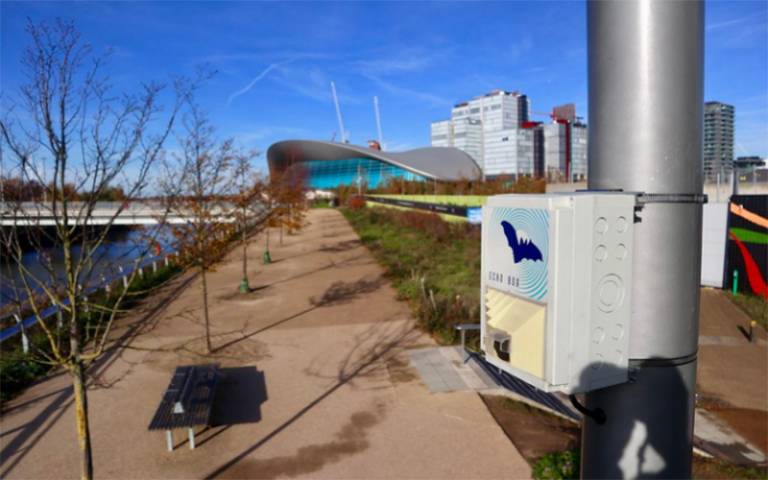Long lasting solutions to the global challenges of biodiversity loss, ecosystem degradation and climate change, will be the focus of the new People and Nature Lab, launching today at UCL East.

One of numerous new interdisciplinary centres opening up at the new campus at the Queen Elizabeth Olympic Park at East Bank this year, the facility will bring together researchers in ecology, engineering, computer science, social science, health and the built environment, working closely with the Zoological Society of London and the Natural History Museum.
By crossing disciplinary boundaries and collaborating with external partners, the research teams will work together to better understand the problems facing the natural world and develop sustainable solutions that can also benefit human health and wellbeing.
The Lab's academic lead, Professor Kate Jones (UCL Centre for Biodiversity & Environment Research, UCL Biosciences) said: "We are completely dependent on natural ecosystems for all human endeavours, and restoring biodiversity is at the heart of solutions to address the biggest problems the planet is facing - for example, stabilising food security, preventing the next pandemic and building healthy cities.
"At the Lab, we will work across disciplines to use tools and techniques like artificial intelligence and big data, to better understand how humans and nature interact and develop new and lasting solutions.
"With our innovative new teaching programmes and our public engagement work with citizen scientists, we also hope to empower future generations to tackle whatever future challenges may lay ahead."
Starting in September, UCL is offering two new, first-of-their-kind master's programmes through the lab.
The new MSc in Ecology and Data Science combines theoretical and practical expertise in data science, citizen science, sensor technologies and applied artificial intelligence to monitor and manage ecosystems and wildlife population.
The new MSc in Citizen Science focuses in on the skills needed to create and manage citizen science projects where members of the public gather and analyse data across a range of disciplines from astronomy to zoology.
Two further MSc programmes are planned for 2023 focusing on nature-based solutions for designing cities, and on the links between nature and human health.
Students working at the lab will have access to the latest research laboratories, collaborative workspaces and an experimental roof garden where they can trial new technologies in a controlled environment.
Led by the UCL Centre for Biodiversity and Environment Research in UCL Biosciences, the People and Nature Lab brings together academics from five different UCL faculties, from the departments of Geography, Computer Science, Civil, Environmental & Geomatic Engineering, and the Bartlett Centre for Advanced Spatial Analysis.
The launch was marked this week with a panel discussion on at the Park on 'How can innovative technologies help address critical ecological challenges?', chaired by Professor Chris Lintott (Professor of Astrophysics and Citizen Science Lead, University of Oxford) with panellists Professor Kate Jones, Professor Andrew Pomiankowski (Director of UCL Division of Biosciences), Rebecca Speight (Chief Executive of the RSPB), Dr Drew Purves (DeepMind) and Dr John Tweddle (Head of the Angela Marmont Centre for UK Biodiversity at Natural History Museum, London).






